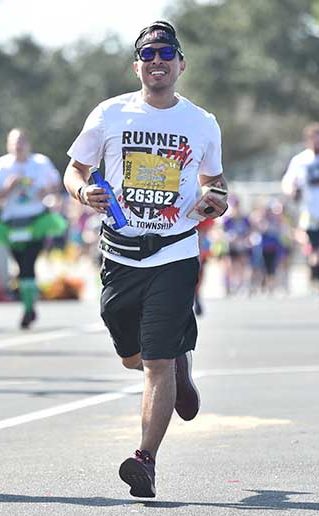This month’s Graduate Student Spotlight highlights Adam Foxfire. A student in the Smith Lab, Adam works on the discovery, purification, and characterization of novel antibiotics from natural sources. Learn more about Adam and his graduate experience in this month’s Spotlight below.
Adam Foxfire
I’m a 6th year PhD candidate in the Smith lab. I was born and raised here in Texas, but grew up on the island of Galveston, which I consider (along with the beach) my home. Along with my older brother, I’m a first generation college student and received my B.S. in Biology from Texas A&M University. To put it as generously as I can for myself, I definitely wasn’t a model student as an undergrad (please don’t inquire about my GPR), but I finally got the wake up call I needed, graduated, and joined the Biology department with a focus on microbiology. In the Smith lab we focus on the discovery, purification and characterization of novel antibiotics from natural sources, and if you ever stop me feel free to ask me for my “mom speech.” It’s how I describe what I do to my mom, who for the longest time thought I was about to cure cancer. (Sorry mom).
In my spare time I like camping, off-roading and other questionably dangerous activities like motorcycles and skydiving, but when I’m outside of the lab my life revolves around my doggo, Dorothy. She’s 11 and has been with me through a lot of the good and bad times as a student. Oh, and the other thing I really enjoy is eating, so by proxy I claim my actual hobbies to be running and working out. I “like” to run marathons, and recently completed my 3rd Dopey Challenge (48.6 miles!) at Walt Disney World at the start of the year.
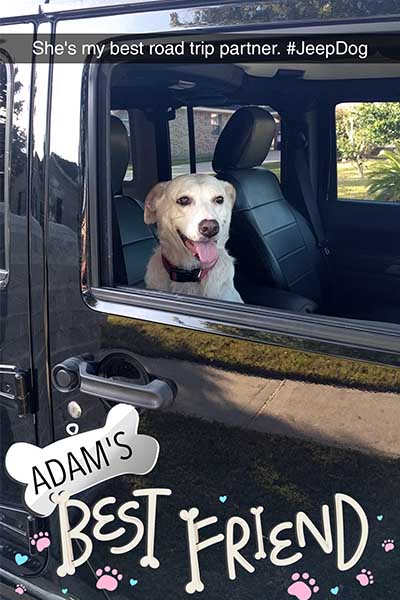 Who is your role model, and why?
Who is your role model, and why?
That would be my godfather Frank. He was my priest starting back in junior high, and he got me through a lot of really rough times. He’s since passed away, but I can honestly say I wouldn’t be who I am today without his influence. He was the father I needed when I needed one the most.
What is the best advice you’ve been given?
There’s a tie:
“Discipline is deciding between what you want now and what you want most.”
And
“It’s too big of a world to be in a competition with everyone else. The only person I have to be better than is who I am right now.”
What is on your bookshelf?
A whole heck of a lot of books I haven’t been able to read since I started grad school, but I mostly keep collections of famous classics: Lovecraft, Arthur Conan Doyle, Stephen King, Stevenson, Shelley… the list goes on. Basically it looks like I kept all the assigned reading from high school, because I did. Speaking of, I also have all my textbooks from undergrad, because those were expensive.
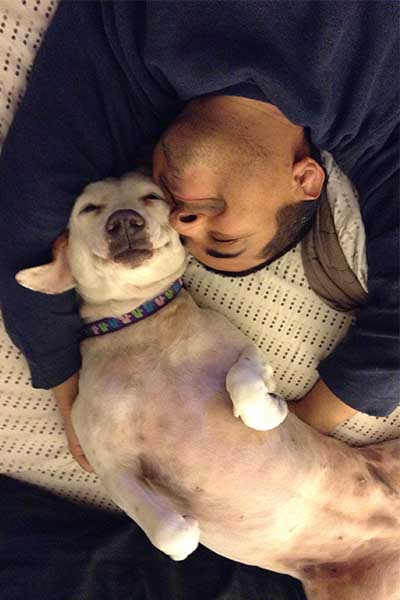 What is one thing people would be surprised to know about you?
What is one thing people would be surprised to know about you?
I’m currently learning Italian and am a member of the TAMU Skydiving Club. Also, I’m terribly shy but subscribe to the “fake it til you make it” line of thought in social situations.
What is your favorite word?
I once read an article about foreign words that the English language needs to borrow. My favorite was “backpfeifengesicht,” from Germany. It roughly translates to “a face that’s desperately in need of a slap” and I feel like we all know at least one person in our lives that this describes.
What’s it like balancing work and being a dad?
Does being a dog dad count? I make up for leaving my dog Dorothy at home all day by taking her everywhere I can other times.
What do you think are your greatest strengths as a Teaching Assistant?
Relatability. I remind my students that it wasn’t too long ago that I was sitting in the same spots they were. Also, I’ve been told that I do a great job answering questions in a way that doesn’t seem condescending, which they get a lot apparently.
What characteristics do you prize most in a colleague?
A good sense of humor is pretty great.
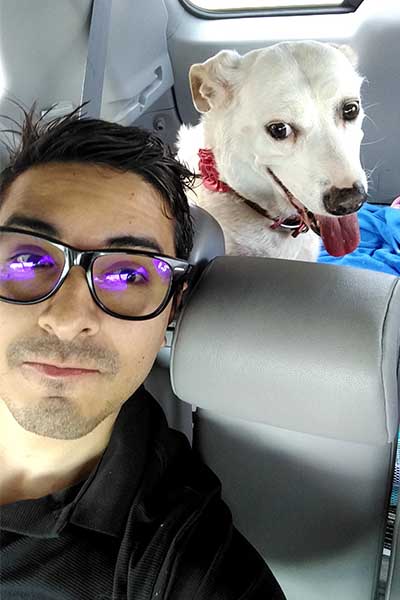 What advice would you give to a new graduate student?
What advice would you give to a new graduate student?
For new students: take a breath. Work hard, but don’t underestimate the power of taking a day off to mentally recuperate if you need to. Also it might take a bit to make this adjustment, but all the professors are not just your professors now, they’re your colleagues. Approach them with questions, and don’t be afraid to try and make friends. These are the same people who can collaborate with you when you eventually have your own lab.
What strategies did you use to be successful as an undergraduate student? As a graduate student?
I was a terrible, terrible undergrad. For grad school I did the opposite of that, as well as playing to my strengths as a person. For example, I’m a night owl, so I do a lot of my work at crazy late hours of the night rather than trying to run experiments as a zombie in the mornings.
Why did you decide to pursue your graduate studies with the Department of Biology at Texas A&M?
I actually was an undergrad researcher in Dr. Smith’s lab. When I graduated, he kindly offered to keep me on as a paid employee, which I jumped on. After spending enough time there, I was convinced it was for me.
What attracted you to your major?
When I was growing up, I was always the type of kid who enjoyed seeing things work together. Like I could sit in front of a clock and watch all the gears interact and make it work. Eventually it ended up extending to life. The human body, cells, bacteria… life in general is full of incredible machines, and I like seeing what makes them work. That’s what eventually led me to biology.
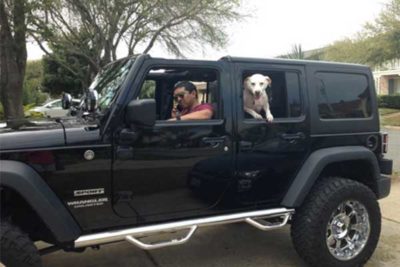 What courses did you enjoy the most?
What courses did you enjoy the most?
This is probably cheating, but I took archery and fencing as my kinesiology classes as an undergrad.
What is the broader significance of your research?
The Smith Lab is an antibiotic discovery lab. The world is in constant need of new and effective antibiotics to help combat increasingly resistant strains of pathogens, and our lab represents the first step in finding them.

